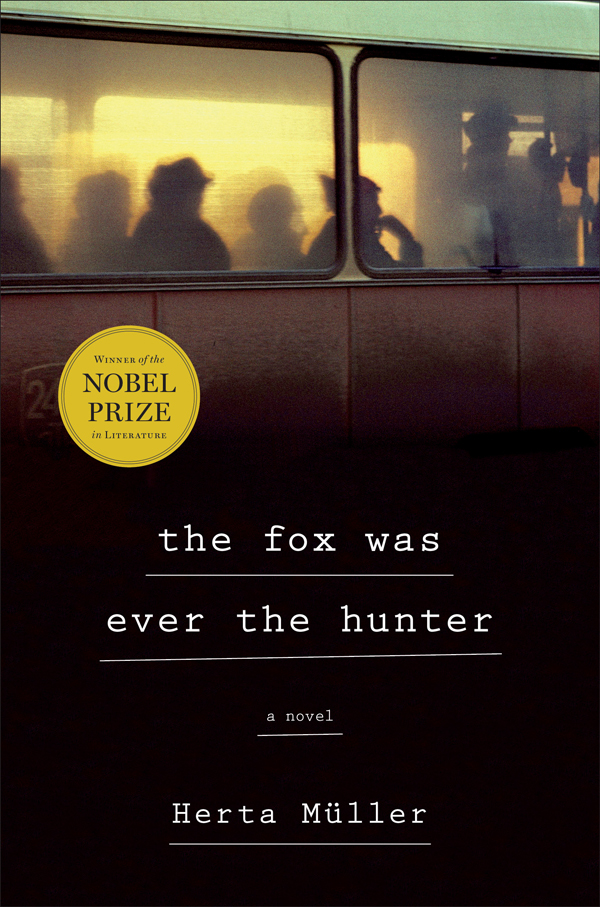
The Fox Was Ever the Hunter
A Novel
کتاب های مرتبط
- اطلاعات
- نقد و بررسی
- دیدگاه کاربران
نقد و بررسی

August 15, 2016
Set in Romania at the end of the Ceausescu era, this Kafkaesque tale offers a glimpse of a society unhinged by fear and paranoia and crushed by the hopelessness of its dead-end future. Its principal characters include Clara, a worker in a wire-making factory; her lover, Pavel, a married lawyer; Paul, a musician whose concerts have been raided by the police; and Adina, a schoolteacher who discovers that someone is regularly entering her apartment and systematicallyâand symbolicallyâdismembering a fox rug in her bedroom. Suspicions suggest that someone in this circle of friends and acquaintances is giving information to the authoritiesâbut who? Nobel Prizeâwinner Müller (The Hunger Angel) foregrounds her tale against a bleak landscape mired in pollution and industrial waste, where the natural world is menacing: poplar trees ringing the town are described as "knives," and the sun as a "blazing pumpkin." In short, staccato chapters etched with her spare but crystalline prose, she parades scores of nameless working-class people who seem devoid of any inner life and whose prospects for rising above their circumstances are summed up as "Nothing but this gutter of poverty, hopelessness, and tedium, from mother to child and on to that child's children." More than a portrait of individual lives under the suffocating weight of a dictatorship, Müller's novel is a searing appraisal of a people whose souls have been strangled by despair.

Starred review from March 1, 2016
Atmospheric, lyrical novel from Nobel Prize-winning writer Muller (Traveling on One Leg, 1998, etc.) of life in Romania during the closing days of the Ceausescu dictatorship. Considered Muller's most difficult, this novel first appeared in 1992. The German original permits the rendering of the title as, "back then, the fox was the hunter." Now the fox is definitely the quarry. It takes a while to come to that point, however, for the first 100 or so pages of Muller's book are given over to densely rendered, poetic descriptions of people and places in a town along the Danube that sometimes have only peripherally to do with the main action; in that inventory, flies, ants, dogs, and poplars figure prominently. Adina, the central character, is a teacher, her boyfriend, Paul, a musician. They are not exactly activists, not exactly hard-core intellectuals, but even so, they're suspect enough that a fox fur that Adina has had since girlhood is steadily being whittled away, taunting evidence that while they're at work, the Securitate is visiting their apartment. Someone is always watching. Even Pavel, the paramour of Adina's friend Clara, isn't immune from being spied on as the two make love in an apparently deserted cornfield--and he's one of the spies: "Aren't you a lawyer," Clara asks him. "Yes, he says, but not at the courthouse." In this world, a mild joke about the dictator takes on the most serious contours. Adina's friendship with Clara frays over her choice of lovers, but even so, Clara warns Adina that the noose is tightening, giving her time to escape, as Muller herself did, to the West--though Adina worries that in trying to flee they'll wind up gunned down in a cornfield: "And every now and then, she said, a hair will get stuck in your teeth while you're eating, and it won't be one of the baker's that just happened to land in the dough." An essential work of post-Iron Curtain literature and a harrowing portrait of life under suspicion.
COPYRIGHT(2016) Kirkus Reviews, ALL RIGHTS RESERVED.

December 1, 2015
This early work is more evidence why Muller won the 2009 Nobel Prize in Literature. During Ceausescu's waning days, Adina works as a school teacher, and factory worker Clara and musician Pavel are lovers. Someone's an informant, as Adina realizes when she finds her fox fur rug mutilated; the fox, as hunter, is out to get her. After repeatedly refusing to cooperate with the secret police, Muller managed to leave Romania in 1987 and now lives in Berlin.
Copyright 2015 Library Journal, LLC Used with permission.

























دیدگاه کاربران